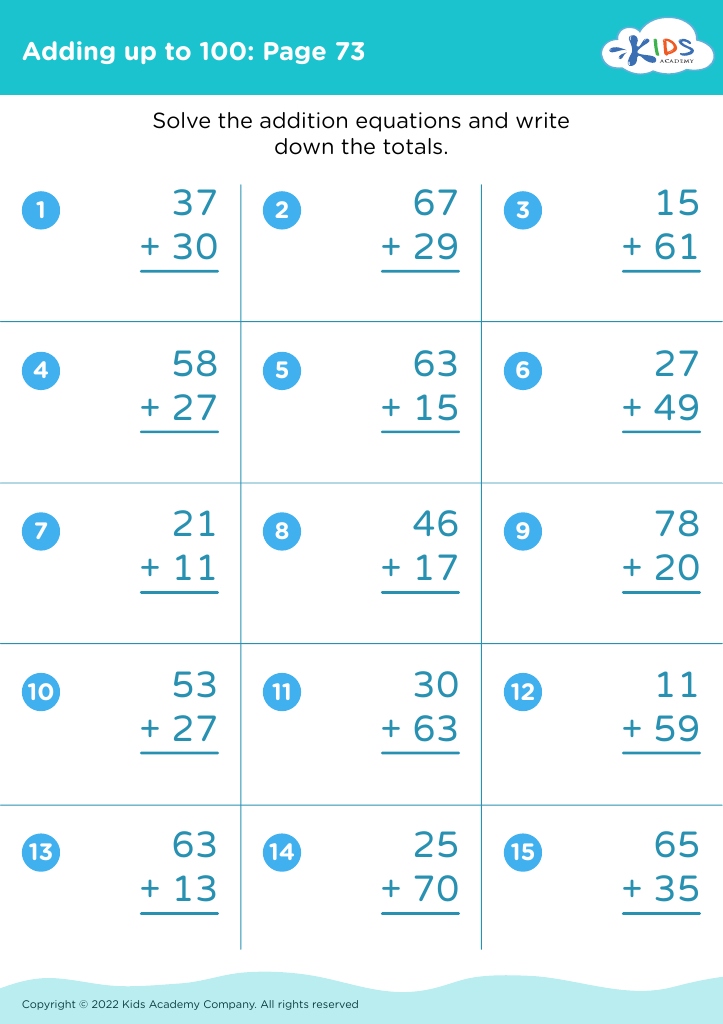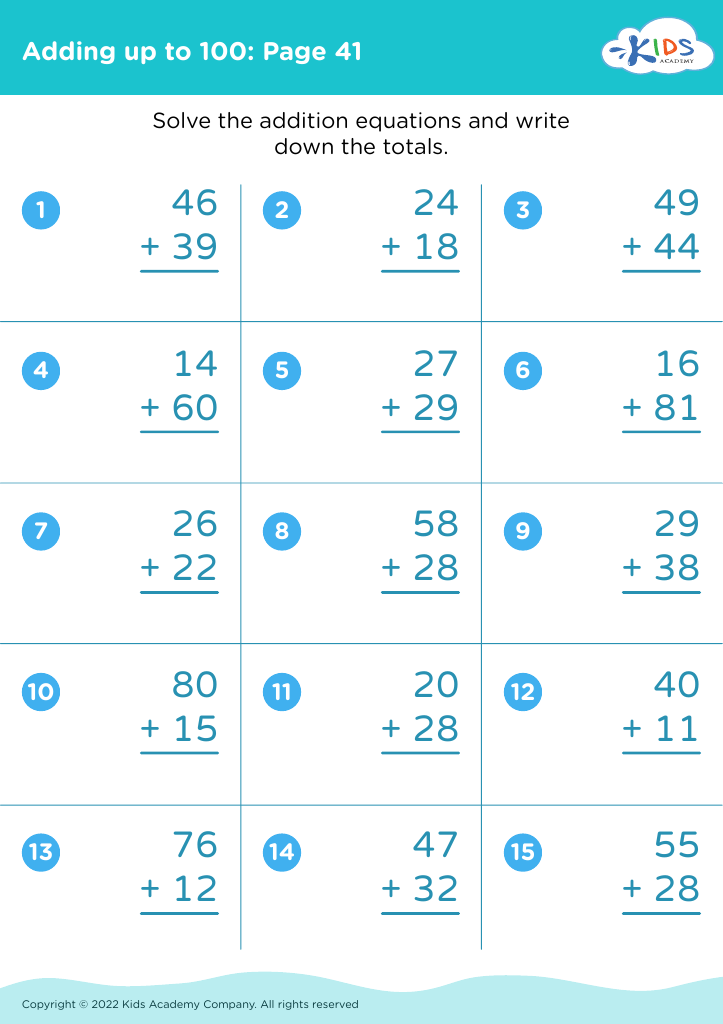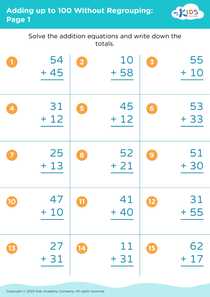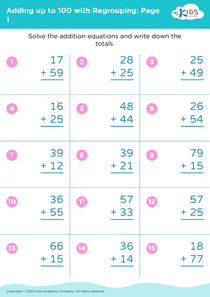Basic Math Skills Adding up to 100 Misc Worksheets for Ages 3-7
5 filtered results
-
From - To
Explore our comprehensive collection of Basic Math Skills Adding up to 100 Misc Worksheets, designed specifically for children aged 3-7. Engage young learners with fun and educational exercises focused on enhancing their addition skills and building a solid math foundation. These worksheets incorporate vibrant visuals and diverse activities to make learning an enjoyable experience. Perfect for both classroom use and home practice, our resources aim to sharpen critical thinking and problem-solving abilities. Help your child achieve math proficiency and confidence with strategically developed exercises to suit early grade learning needs. Discover the key to mastering basic addition effortlessly!
Parents and teachers play a crucial role in developing foundational skills for young children, especially those between the ages of 3-7. One key area of focus should be basic math skills, including addition problems that add up to 100. These early math skills are vital as they set the stage for future academic and practical success.
First, understanding addition within this range builds a strong numerical foundation, making it easier for children to grasp more complex math concepts later in their educational journey, such as multiplication, fractions, and algebra. Second, early math skills are correlated with better problem-solving abilities and logical thinking, skills that are critical not only in school but in daily life situations like shopping, cooking, and budgeting.
Additionally, fostering basic math skills enhances a child's confidence and enthusiasm for learning. Success in early math can lead to a positive attitude towards more advanced subjects. Parents and teachers who engage children in fun, interactive activities such as counting games, puzzles, and practical problems, help make learning math appealing rather than intimidating.
Teaching young ones to add up to 100 is not just about numbers; it reinforces perseverance, attention to detail, and the joy of accomplishment. Therefore, it is essential that both parents and teachers provide ample opportunities for children to develop these crucial skills within a supportive and encouraging environment.















